Predators of Koalas
Koalas also face threats from the ground and aerial predators in the wild of Australia. As many as 15 carnivore animals in Australia are the regular predators of koalas. These major predators of koala include Dingoes, Wild dogs, Bunjils (also known as the Wedge-tailed Eagles), Big-sized Owls, pythons and Goannas (Monitor Lizards). Koalas are usually safe from dingoes and wild dogs when they are on trees. However; their slower speeds on the ground makes them extremely vulnerable to dingoes and wild dogs.
The koalas' predators include dingoes, wild dogs, Bunjil or Wedge-tailed Eagles, Owls, pythons and even goannas. Koalas are threated both on trees and on ground by their predators.
Furthermore; dingoes and wild dogs are capable of killing any sized of koalas on the ground. On the other hand; Wedge-tailed eagles and Big-sized owls can easily hunt small-sized koalas on trees as well. Furthermore; the Australian Goannas can easily hunt down koalas on both trees as well as on the ground.
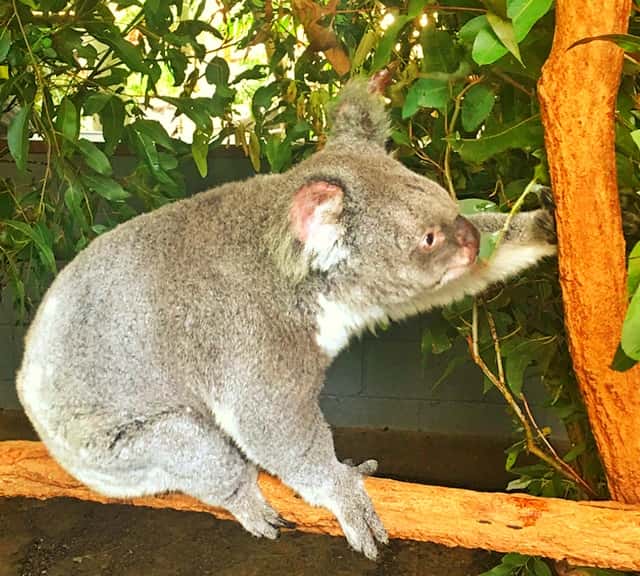
Land, Aerial, and Aquatic Predators of Koalas
Koalas' predators can be divided into three major categories such as land predators, aerial predators, and aquatic or water predators. Land predators of koalas include dingoes, wild dogs, stray dogs, domesticated Dogs, fox, household cats, wild cats, carpet pythons, devils of Tasmania, and spotted quolls. Similarly, aerial predators of koalas include wedge-tailed eagles, powerful owls, barking owl, brown falcon, white-bellied sea eagle, black kites, large hawks. Finally, the aquatic predators of koalas include freshwater crocodiles, saltwater crocodiles, water monitors, and pythons. The following table classifies each predator of koalas.
| Land Predators | Aerial Predators |
|---|---|
| Dingoes | Wedge-tailed Eagles |
| Wild Dogs | Powerful Owls |
| Stray Dogs | Barking Owl |
| Domestic Dogs | Brown Falcon |
| Fox | White-bellied Sea Eagle |
| Household Cats | Black Kites |
| Carpet Pythons | Large Hawks |
| Devils of Tasmania | |
| Spotted Quolls | |
| Monitor Lizards | |
| Water Monitors | |
| Pythons |
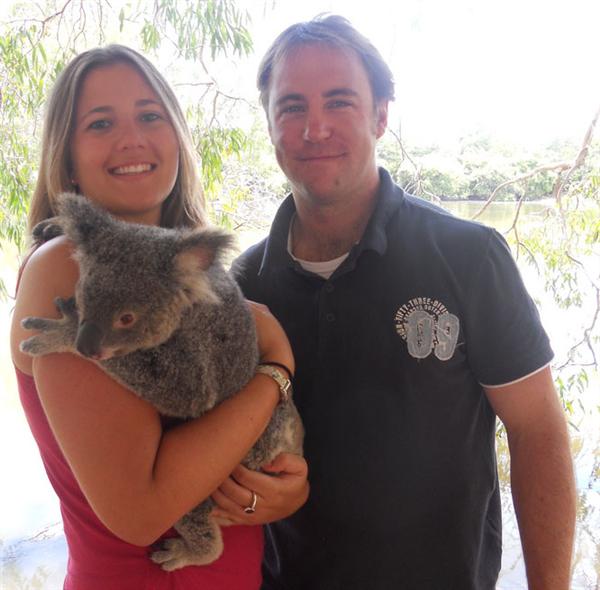
It is believed that dingoes and wild dogs only became predators of koalas some 3500 years ago. The reason being dingoes are not native to the Australian continent and they reached Australia from Asia. On the other hand; koalas have been living in Australia for more than 25 to 30 million years after their final evolution.
Among the koalas' predators, dingoes and wild dogs are the non-indigenous ones while bunjils, owls, pythons and goannas are the indigenous ones.
Therefore; dingoes and wild dogs should not be considered as the indigenous predators of koalas. On the other hand; bunjils or wedge-tailed eagles, owls, pythons and even goannas should be considered as the indigenous predators of koalas because they have evolved at the Australian continent millions of years ago.
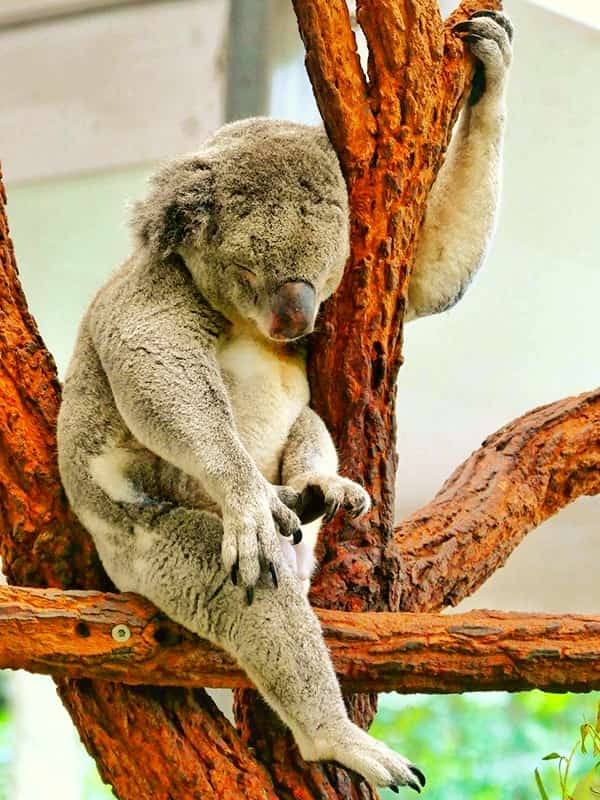
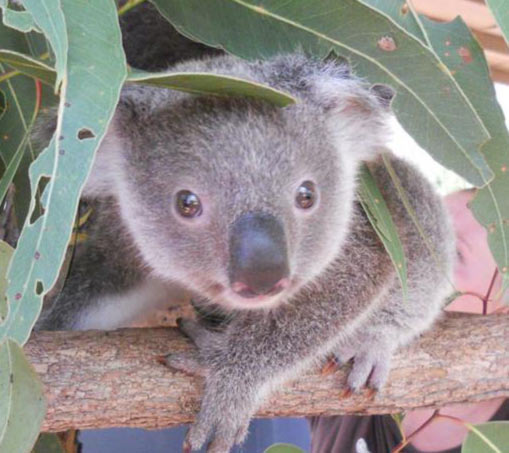
Despite the fact that koalas have half a dozen predators in the wild of Australia, koalas are usually considered safe on trees. However; koalas do roam in their territories and switch trees in search of food and mating; this is where a predator like a dingoes, wild dogs and even pythons can hunt any sized koala. Furthermore; sick koalas suffering from some kind of a disease usually cannot climb tree and they reside at the bottom of trees. Therefore; such koalas are also vulnerable to predators like dingoes, pythons and wild dogs.
On the ground; the roaming and sick koalas are primarily the victims of dingoes, wild dogs and pythons while bunjils and huge owls can hunt koalas on trees.
On the other hand, bunjils which are also called the wedge-tailed eagles and owls usually hunt small-sized koalas on trees. Interestingly; goannas indirectly hunt koalas by injuring and injecting their venom into koalas. The venom doesn't allow the blood to create clots and koalas are bled to death from the injury.
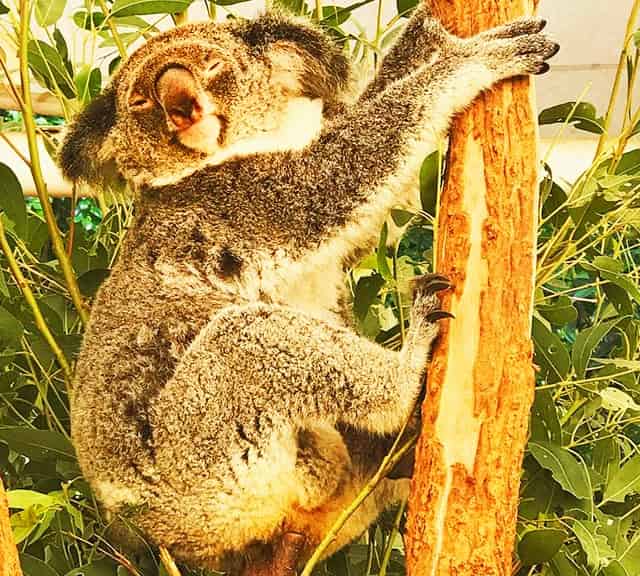
Goannas indirectly hunt koalas by injuring them and letting them die slowly by keeping a follow-up on an injured koala.
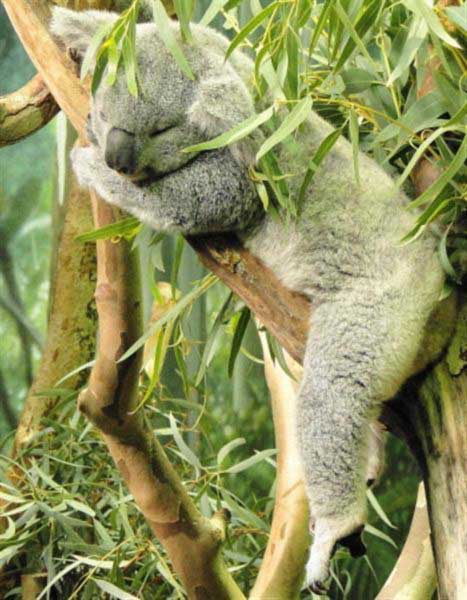
Apart from dingoes and wild dogs, a recently extinct marsupial mammal known as the Tasmanian tiger or Thylacine is also thought to be a prehistoric predator of koalas on the ground. Thylacines like dingoes and wolves were group hunters and just likes dingoes they would have also ambushed any roaming koala on the ground.
Thylacines should also be considered as the indigenous predators of koalas at the mainland Australian continent. Thylacines are now extinct in Australia.
Since the Tasmanian tigers have thrived at the Australian continent for millions of years, therefore; they should also be considered as the indigenous predators of koalas. It is believed that thylacines became extinct in the mainland Australian because of its direct competition with dingoes.
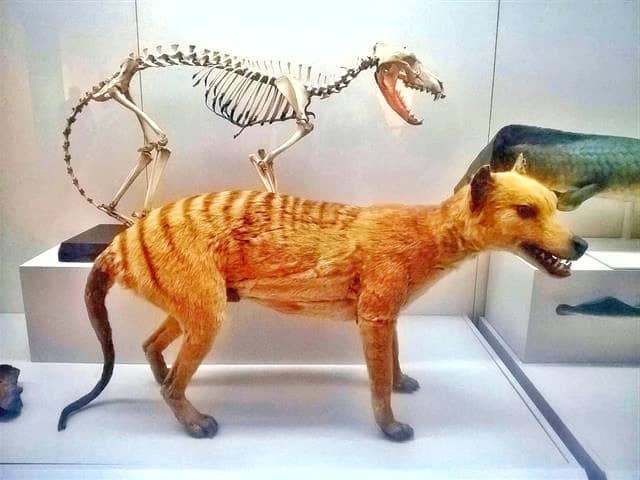
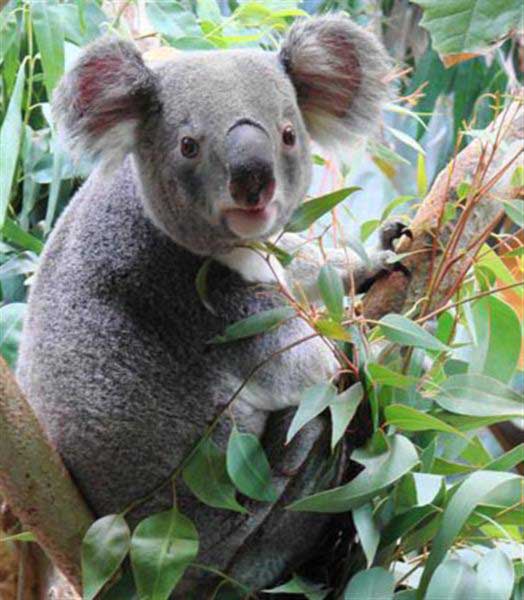
One of the last identified predators of koalas are humans. They became the key predators of koalas in the 19th and the 20th century. Humans after arriving Australia found koalas� fur very lucrative for the financial gains and in this greed, they started an unprecedented hunting of koalas at a very large scale. It is believed that humans as predators have also been responsible for the drastic (from millions to just few hundreds of thousand) decline in koala population.
Humans (The European settlers) have directly and indirectly been the predators of koalas from the 19th century onwards. The humans as predators has caused the biggest damage to the koalas� population.
Furthermore; humans have also directly and indirectly eradicated the natural habitat of koalas through agriculture, rapid urbanization and by bringing dogs as pets. Today; the domestic dog attacks on koalas is considered as the third biggest cause of declining koala population at the Australian continent.
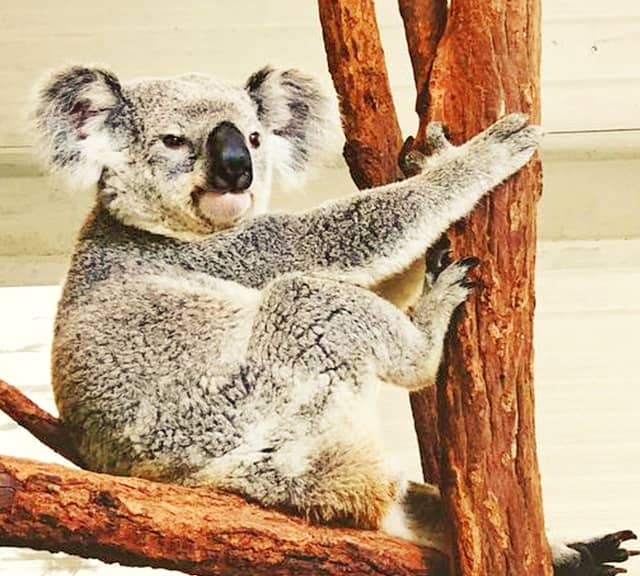
Lastly; it can be concluded that despite the presence of half a dozen predators, the mature koalas still do not face a huge threat from predators. Since there is no agile tree climbing carnivore in Australia, koalas are relatively safe on the Eucalyptus trees and they are very hard to access. If koalas would have predators like leopards, they would have been a very easy meal for them.
The mature and big-sized are relatively safe from predators, if they are on trees. Only the younger koalas are the target of the aerial predators on trees.
Luckily; such predators do not exist in Australia. Even on trees, the smaller koalas are relatively safe under the pouch of their mothers. However; their most vulnerable period to the aerial predator is when they come out of their pouches and being very small in size, they can be very easy target for owls and bunjils.
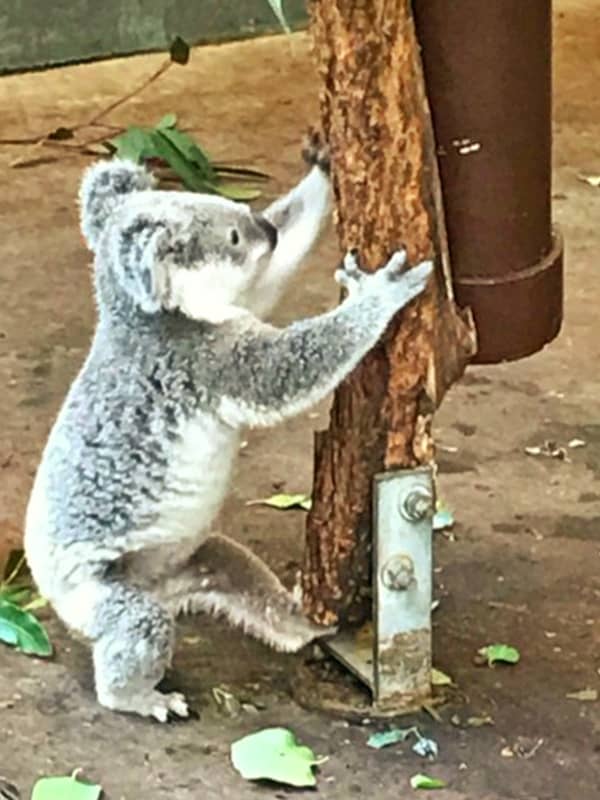
Dingoes are a very big threat for any roaming koala on the ground. Dingoes can easily outrun a koala and they usually hunt in packs. Therefore; a koala may have no chance to survive if it encounter a dingo or a pack of dingoes.
Dingoes can very easily hunt koalas on the ground as dingoes or fast and hunt in groups.
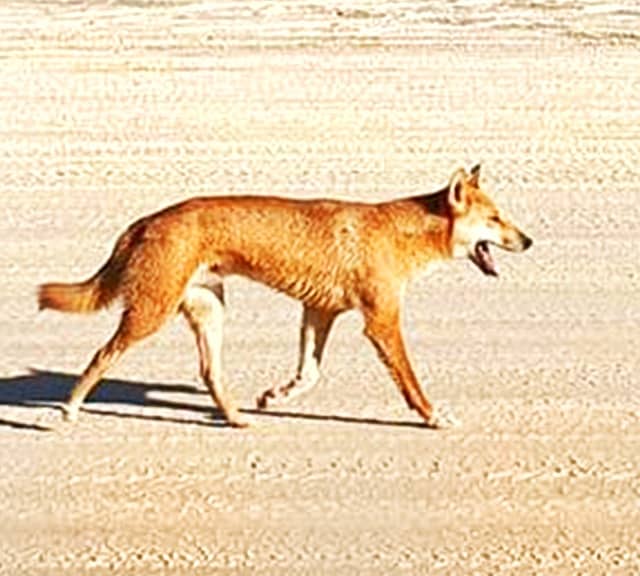
Bunjils which are also called the Wedge-tailed eagles are also one of the biggest predators of koalas. Bunjils can kill any size of koalas but they preferably hunt hunt the koala joeys or smaller koalas
Bunjil or Wedge-Tailed eagles are also one of the biggest predators of koalas. Bunjils can easily hunt any size of koala.
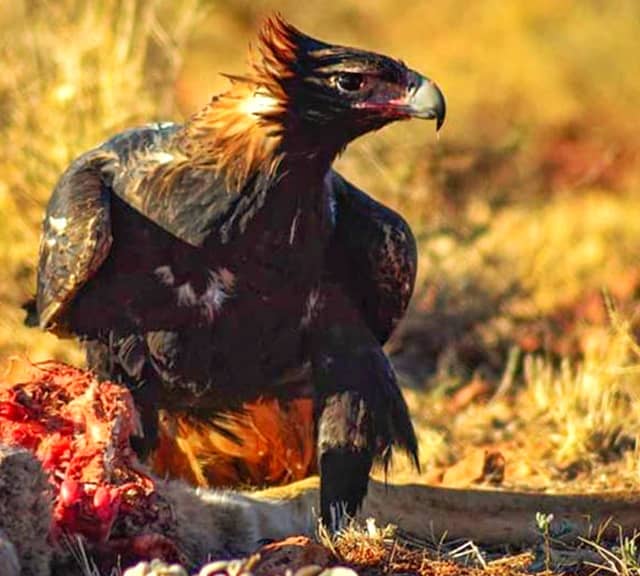
Goannas are also well-known predators of koalas. Goannas can not only hunt koalas on trees but they cal also hunt koalas on ground. Goannas have been hunting koalas for millions of years. Goannas venom is very dangerous for any animal and they are known to have their victims bleed to death.
Goannas are very well-known predators of koalas. Goannas can also hunt koalas both on trees and on the ground.
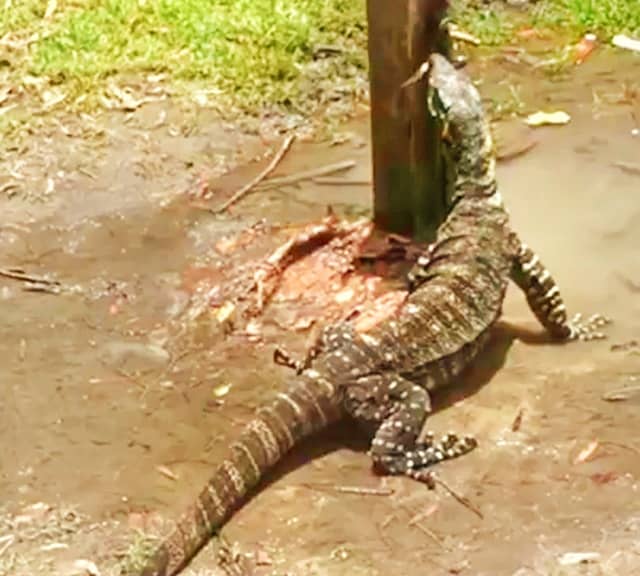
Liger Articles
Carpet Pythons as Predators of Koalas
Feral Cats as Predators of Koalas
Goannas as Predators of Koalas
Dingoes as Predators of Koalas
Pet Dogs as Predators of Koalas